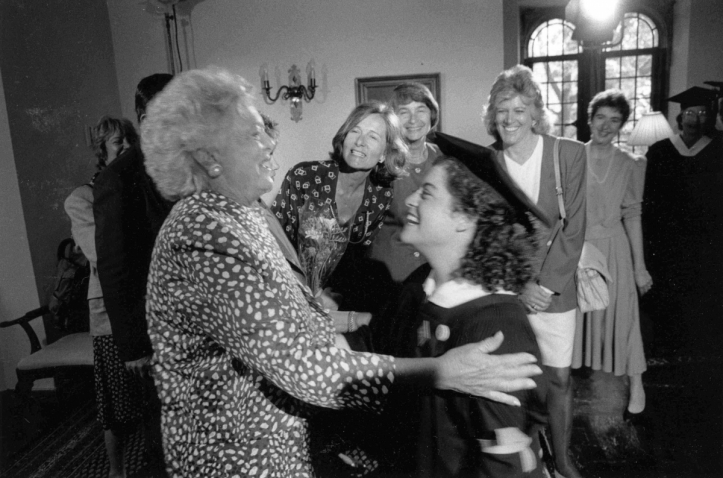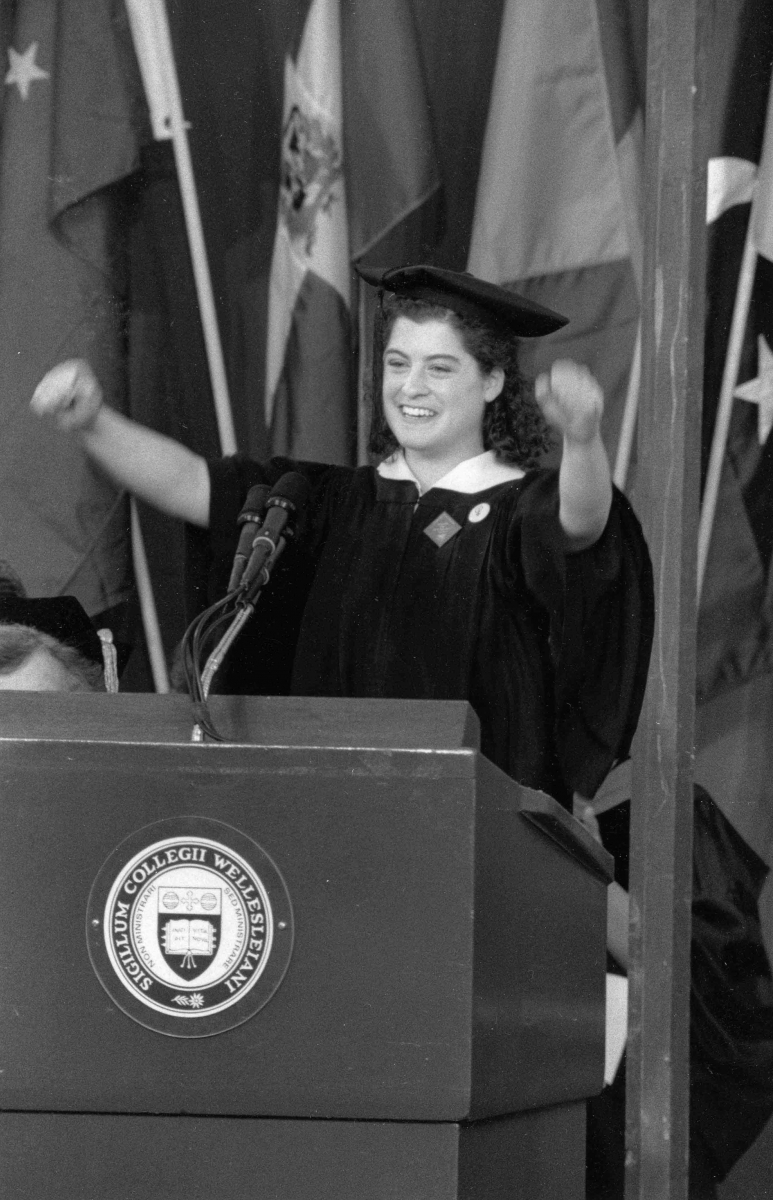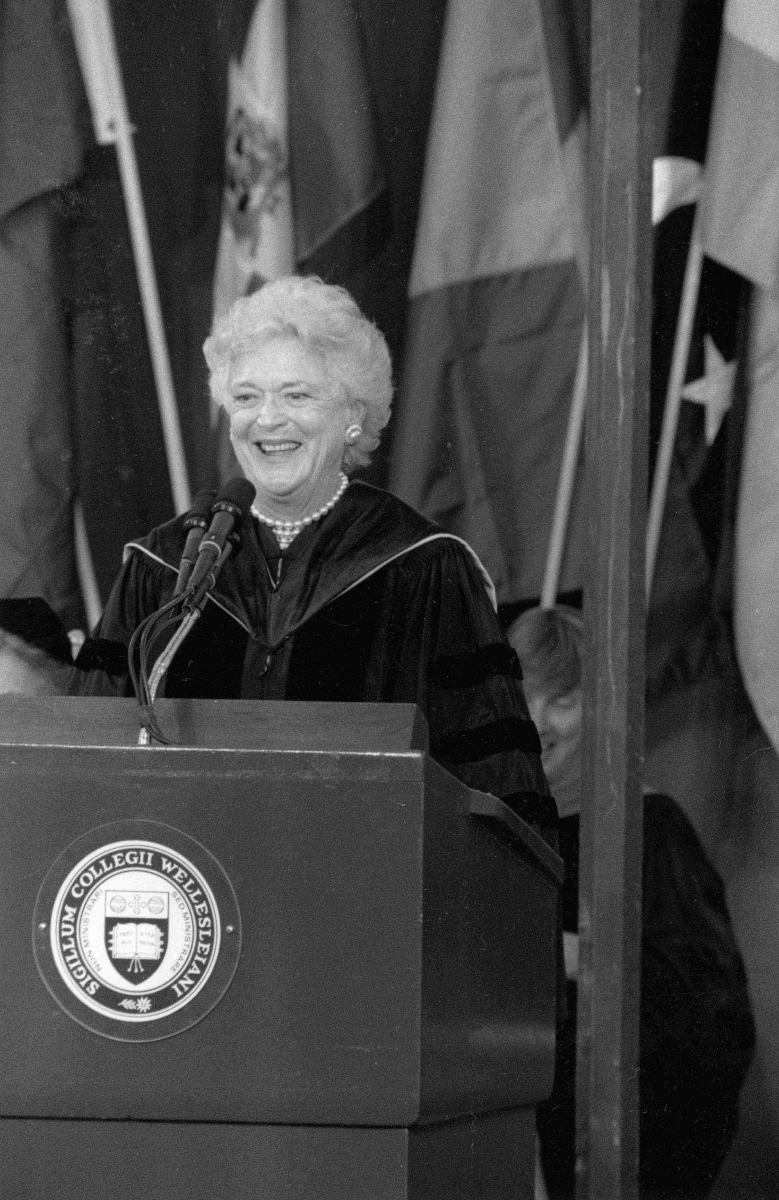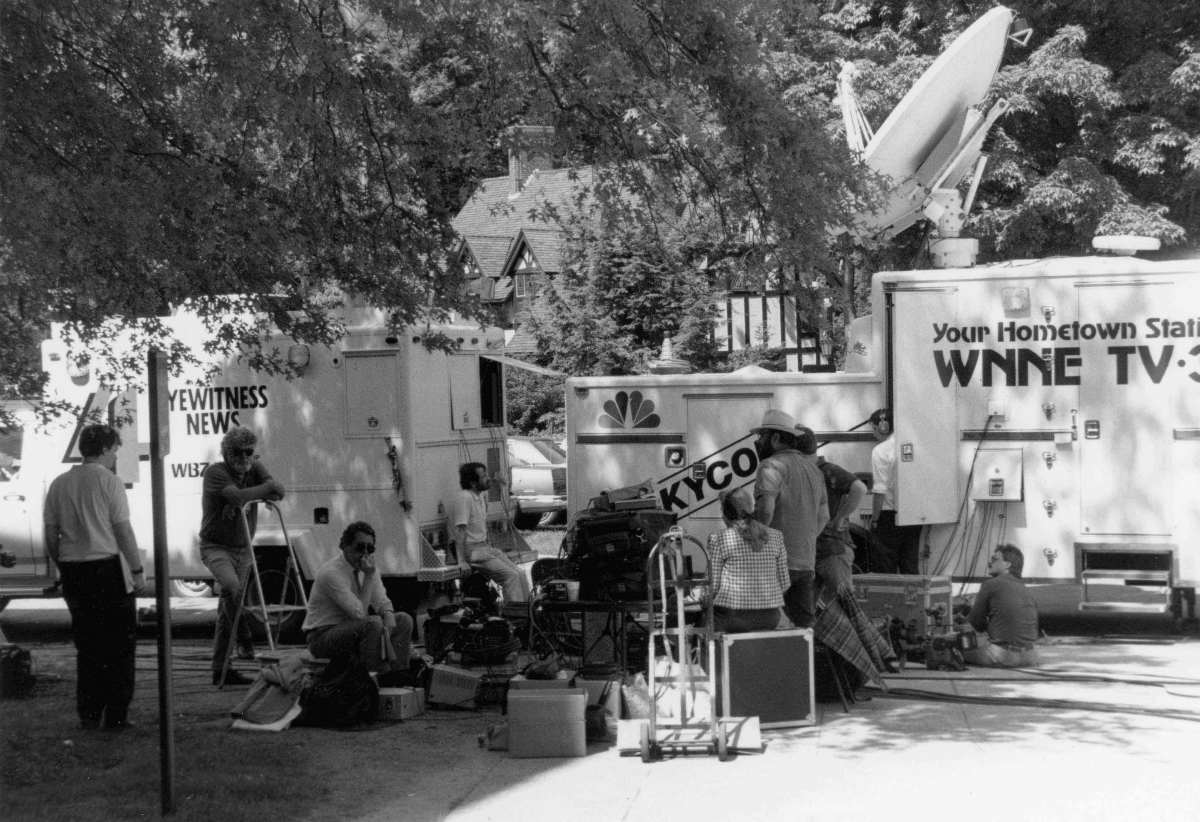On a sunny, sweltering first day of June, 25 years ago, First Lady Barbara Bush called me her “new best friend.” It was an amazing day full of pride, sisterhood, and joy—but it was also the culmination of a contentious spring.
While it feels like ancient history now, my class graduated amid a swirl of media attention that began when two of my classmates issued a protest against the selection of the first lady to be our commencement speaker. Even though she was our class’s selected second choice (our first choice, the author Alice Walker, withdrew for personal reasons), there were concerns that Mrs. Bush’s status in the world was related to whom she had married, rather than to her own accomplishments. Since Wellesley has long educated women whose intellect, courage, and drive leads them to achieve much in the way of nontraditional success, this protest seemed to many of us like an understandable part of the conversations we were having all the time. But when word of our concerns got to the press, the firestorm began.
My strongest memories of the emotions I felt that spring will resonate with any young person who has butted up against the status quo: the fury at pundits like Boston Globe columnist Mike Barnicle, who called us a “pack of whining, unshaven feminists,” and the editorial cartoons who labeled us spoiled brats. The shame when I realized how many alumnae thought we were displaying bad manners. The confusion at finding that other people were not living in the same mental and emotional space as I was, that not everyone spent the bulk of their time pondering gender issues. The camaraderie I felt with my classmates as we came together to defend each other’s right to speak our truth—even when we disagreed with one another.
And then there are the special stories that emerged from my becoming something of a spokesperson for my class, including an appearance on 20/20 that led to an invitation to The MacNeil/Lehrer Newshour. I was on a panel with Wellesley’s own President Nannerl Overholser Keohane ’61 (still one of my idols), author Betty Friedan, Sen. Eleanor Holmes Norton, and a young graduate student from UNC, there to provide the “anti-feminist” point of view. It was hard to hear Judy Woodruff over a headset, so when she asked me if we’d have the same concerns if Eleanor Roosevelt were president, I asked her if she meant if she were first lady, since if she were president we’d have no issues. Reflecting on my performance later my father said, “You were doing great, honey, until you started correcting the moderator.”
Quite apart from the protest, I was selected as the student commencement speaker—an honor I still cherish. Since I would be sharing the dais with Mrs. Bush, it was important to me that she understand a little more about where I was coming from. I wrote to her, and my letter prompted her to call me at my dorm—a call that, I am told, caused a frantic “All House, All House—if Chris Bicknell is anywhere in the dorm BARBARA BUSH is on the phone!” I was not there, but returned to a message inviting me to call her at the White House. We had a lovely conversation and she thanked me for my letter, which she said had really cleared the air.
Twenty-five years later, our class remains close—a closeness resulting in part from the intensity of our senior spring. We come back in record numbers for our reunions. And while we have lived our way into the answers to some of the questions we had then—What will give my life meaning? Can I satisfy my desire for career advancement and get married and have a family? How will my Wellesley experience translate into the rest of my life?—many of them persist.
I am still fond of commencement addresses; when done well, they encapsulate important truths presented as a sort of talisman to young people about to head into an uncertain world. That spring, the class of 1990 learned what happens when you criticize certain notions of womanhood: The backlash is fast and it is furious. What I found important then, and now, is that President Keohane, and even Mrs. Bush, spoke to us in echoes of our own voices, validating our right to ask the questions and seek the answers in our own lives.
Despite all of the things that have changed, my favorite of Mrs. Bush’s lines—one she knew would, and did, bring the house down—is still unrealized. “And who knows? Somewhere out in this audience may even be someone who will one day follow in my footsteps, and preside over the White House as the president’s spouse,” she said. “I wish him well!”
The final line of President Keohane’s charge to our class that day meant the most to me, and her words resonate for every Wellesley graduate. She said, “Wellesley women of the class of 1990… go out and make the world a better place for the women and the men who will follow you. Live in it wisely and well, for yourselves and for others. And remember that the affectionate support and loyalty of our college is with you, today and always.”
Chris Bicknell Marden ’90 lives in Sidney, Maine, where she works in the Office of Donor Relations at Colby College and is the mother of two children.











We ask that those who engage in Wellesley magazine's online community act with honesty, integrity, and respect. (Remember the honor code, alums?) We reserve the right to remove comments by impersonators or comments that are not civil and relevant to the subject at hand. By posting here, you are permitting Wellesley magazine to edit and republish your comment in all media. Please remember that all posts are public.